In the unlikely event that you're a self-published author who has not yet encountered Irish author Catherine Ryan Howard, you're in for a treat. As followers of her wildly popular “Catherine, Caffeinated” blog will know, her love of fresh coffee and all things pink is overshadowed only by her passion for publishing. Indie authors around the world benefit from her ready generosity to share what she's learned on her own self-publishing journey, on her blog, at public events, in the press and via what has become for many authors a bible of self-publishing advice: Self-Printing (as she prefers to call the process. We're delighted to have her on the ALLi blog today so share the secrets of her self-publishing success – and her ambitions for to be trade published too.
What's the secret of your success?
You mean, aside from dumb luck?! I've always maintained that being realistic really helped me. It's hard to imagine this in the wonderful world of opportunity and credibility self-publishing is now but back in 2009, things were very different. My only encounters with self-publishing were stories in the local paper about some hobbyist scribe who'd bound together a few pages of his work, slapped a truly offensive cover on them and persuaded his local bookshop to let him flog a few copies. I'd spent at least ten years of my life by that point reading every How To Write A Novel, Get An Agent and A Six-Figure Deal In Less Time Than It Takes To Read This type book, so I knew that getting a book on the shelf wasn't supposed to be that simple. I was working under no illusions. I knew I'd be starting out at the very bottom rung of the publishing ladder and that the pressure would be on me to prove myself. I had no expectations; I remember at one point thinking that getting to 100 copies sold would be an amazing achievement. So starting from this mindset meant that I was fully prepared to work incredibly hard and that because I expected nothing, every success was a surprise and a bonus.
What is the single best thing you ever did?
Easy: I joined Twitter. Writers work in solitude and since I was unemployed when I start self-publishing, I really was on my own. Twitter in the early days was what kept me sane: it was like having cool, friendly, funny colleagues and a water cooler to gather around with them whenever we wanted a chat. Then it helped me make online friends, some of whom became supporters of my work and helped my self-publishing operation get off the ground. Soon the ‘network' aspect of social networking came into play, and I made some great contacts which led to fantastic opportunities.
This is a big of long story but I love telling it, especially to people who think that Twitter is just for Justin Bieber fans and navel-gazing. One of the first people I connected with on Twitter was a woman named Vanessa (O'Loughlin, the founder of Writing.ie and Irish Advisor for ALLi). She invited me to Ireland's first ever self-publishing conference back in November 2009, offering me a ticket in exchange for live-tweeting the event which of course I was delighted to do. But shortly before the conference, a keynote speaker had to drop out and since I was already going to be there… Well, that was my first speaking engagement. In the audience that day was Sarah, who I'd never met in real life but who had copyedited my book Mousetrapped for me. Cut to: two years later, when another Twitter friend of mine, Ben, approaches Faber & Faber's Faber Academy with the idea of doing a course on social media for authors. They think it's a great idea but want to turn it into a 3-day course by adding a self-publishing day. Ben thinks of me, but he's never seen me speak. He bumps into Sarah, who he also knows, and she's able to assure him that yes, I can string a few words together in public, because she saw me do it back in Dublin in 2009. I got the gig, and it was a fantastic experience that we ended up doing two years in a row. It led to me making even more wonderful contacts, and my contact with Vanessa has led to other incredible opportunities, including doing social media work freelance for a major publishing house. And all because I joined Twitter…
How do you get/stay in creative mode?
Coffee and deadlines, usually. It's very hard. Well, actually I think it's relatively easy to stay in creative mode, it's getting there — or getting started — in the first place that makes me way to tear my hair out. People think that working from home doing writing and publishing things full-time is a dream, and it IS a dream, but it does come with one rather big downside: there's no boss. There's only you, trying to motivate yourself. Trying to be disciplined. Trying to stop squandered minutes from collecting into hours, and lost days snowballing into a lost week.
In practical terms, I have a couple of tips. First of all, I love planning. I have a gorgeous life planner (which I bought from ErinCondren.com — if you are a stationery lover, cut up your credit card before you visit the site) and I love nothing more than messing around with it, adorning it with stickers and colour-coded Muji pens. (Yes, I know this is procrastination. But it's productive procrastination, okay?) That's how I keep track of what I need to be doing and what I want to do next. It's also a great way of seeing how much time you wasted, because the blank spaces of mornings and afternoons where you achieved nothing glare up at you accusingly. But you can close a planner and hide it away, so I also have a calendar above my computer where I write my word count for the day, ever since the beginning of this year when I vowed to start writing every day, even if it's just 500 terrible words. I'm also trying to exercise more so I give myself a little gold star — like the kind teachers used to hand out in school — in the box for each day I've gone for a long walk or whatever. My desk is in a corner of my living room so there's no escape. Nothing induces guilt quite like it!
My second tip is for getting back to your WIP when you're fallen out of love with it for a week or two: read a great book. I used to think this was a recipe for disaster (imagine me clutching said Great Book, wailing and saying ‘But I'll NEVER write as a good as that!') but this past week I read a proof of The Truth About My Harry Quebert Affair, and it was so twisty and fun that it really made me want to get back to my own twisty novel. Or, you know, read a few bad ones and realize that you can do better, and then get back to your desk and prove it.
How do you prioritize?
Generally I stick to the times of the day: adding to the WIP in the morning and Everything Else in the afternoon (social media, etc.) when I'm tired but not tired enough to tweet or send e-mails. If I fall behind on a particular project, I try to clear a week in which I can work on that almost exclusively because otherwise I'll get all anxious and distracted by it. I always try to remind myself that even spending 5 minutes on something every day will eventually get that something done. I try not to feel overwhelmed, as that just sends me to the sofa to veg out on TV.
What's next?
Right now my priority is finishing a polished draft of a novel. It's a thriller that I'm hoping someone else will publish; I'm searching for an agent at the moment. To be honest I'm a bit sick of explaining why I still aim for traditional publication, but in a nutshell: it's what I've wanted since I realized people wrote books. It's my dream. It's what I want for my fiction. In practical terms it's the best way to get into bookshops and regardless of what the future holds, that's where most people who buy books right now buy books from. Someone said to me recently, ‘But they'll all be closed in ten years!' Well, that gives me ten years then. A publishing contract isn't for life, you know. Another argument against this is the finance one, where I'd make more money in a year's self-publishing (or less) than the average advance, a far greater percentage of e-book royalties, etc. but here's another thing I'd like to say: I don't just want a traditional book deal, I want a good one. Even if I do get what I think is a good one and it's a total disaster and I join the ranks of authors angry at the way trad publishing treated/failed/exploited them, I still want to find out about it for myself. This wonderful new world authors live in is all about experimentation and I want to see both sides of the fence. Of course, this may all be moot, because it's quite possible no one will ever offer me one!
Having said that, I still want to self-publish. I think all authors interested in professional careers should, even if it's not their ‘main' work. I'm thinking of writing and self-publishing some thriller novellas, maybe under a pen name to keep my ‘brands' very clear: Catherine Ryan Howard is strictly light-hearted non-fiction, so I wouldn't publish them under that. Even if people know your pen name is really you, it still helps manage expectations and inform the reader as to what they can expect.
I'll also be updating Self-Printed for the third time, with an aim to have Edition 3.0 out by September 1st. My head aches at the thought but it has to be done.
What's the highlight of being an author-publisher for you?
There's a recording of John Mayer singing Bold as Love on his Where The Light Is album in which he says something like ‘I made it happen for myself … That's a really cool thing to be able to say in your twenties.' Well, twenties or not, I love being able to say that. All the things I've achieved in the last five years, going from despondent and unemployed to being able to make a living just from book-related things, I've done it all by myself. For me, that's the highlight.
Of course the flip side of that coin is that when things aren't going well you've no one to share the blame with, but that just makes the highs even bigger.
Even if you don't sell a single copy of your work, that day when your proof copy arrives (or when your e-book goes on sale) you can look at it and say, ‘I did that. ME!' That feeling of pride never goes away.
What's your top tip for indie authors?
I think having a plan is all important. The act of self-publishing is not the first thing you do. For example I just had an e-mail this week from someone who'd read Self-Printed, in which I suggest contacting potential reviewers, blog tour hosts, etc. at least three months out, and he was saying that it's too late for him to do that because the book is out next week. Well, why are you just researching the subject now? Why didn't you read all the ‘how to' books and blogs long ago, and use what you learned in them to put together a schedule that was going to work? Of course we should all always be learning, making each self-publishing operation even better and slicker and more successful than the last, but you'll miss out on key opportunities if you focus just on getting the book out there, on sale, and not all the other things you should do before then that might help sell a copy of it. Plus, if you buy yourself a fancy planner, gold star stickers and some multicolored Muji pens, planning is the perfect way to procrastinate with purpose!
Like to share this post with other indie authors? Here's a suggested tweet to make it easy:
Successful self-publishers tell us how they did it – this week with @CathRyanHoward http://wp.me/p44e6Y-1JL via @IndieAuthourALLi


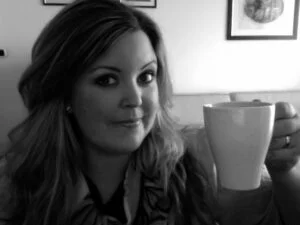
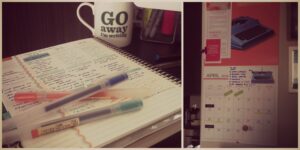
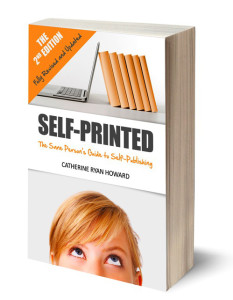
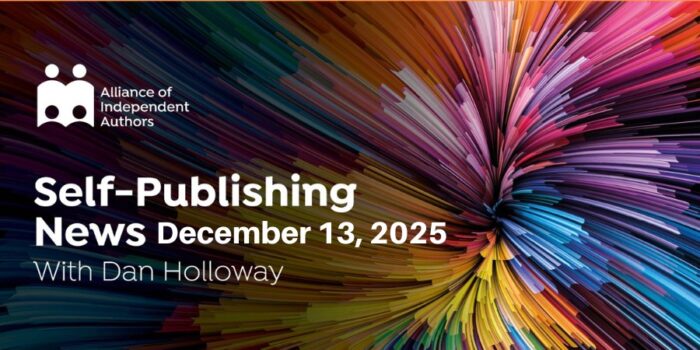

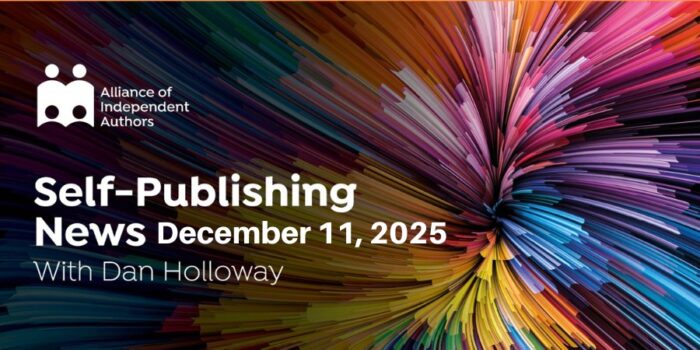
Cheers to ALLi’s collaborative spirit! (By the way, the current work in progress is now a work in progress for a production person, who is turning it into a beautiful paperback and e-book version of itself…)
I loved your article, or whatever you call it – full of enthusiasm and joy and the reality of what it’s like to be to be a writer and having to fire yourself up and stop yourself mooching about and procrastinating. And I absolutely empathise with your desire to be traditionally published – I’ve recently self-published my book, Dependence, (no, I’m not using this reply as a reason to mention my book, but I may as well add it in, as not!), but I’ve already told my next WIP that it is going to be traditionally published, because, like you, that’s what I’ve always dreamed of. I’m going to find myself a literary agent (being positive, you see!) and take it from there: that’s the plan.
Good luck with all you do,
Sue
Wow, Catherine, you were born at the right time! In other words, you have time and energy on your side… hobbling along behind you comes me (and a selection of others!) who could be your Mum, (age-wise), have taught ourselves twitter & social media and self-discipline (also known as anti-procrastination techniques) and here we all are, having a real go at making being an Indie author work!
Here’s to working together in ALLi! (Oh, and the present WIP has just become a WIP for a production person making it become a lovely e-book and paperback version of itself…)
Work in progress.
What is “WIP”?
Work in Progress, William.